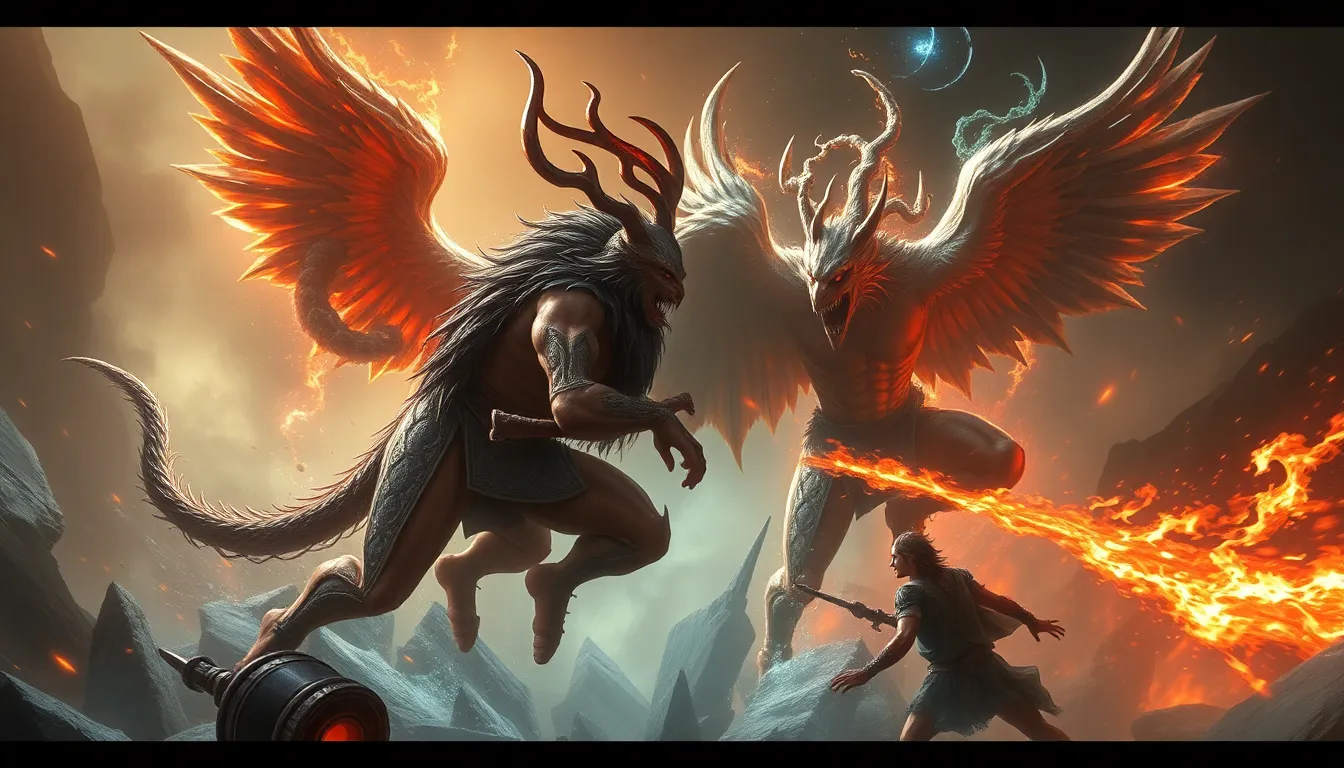The Symbolism of Fire in Slavic Mythology
Introduction: The Central Role of Fire in Slavic Culture
Fire played a pivotal role in Slavic mythology, folklore, and rituals. It symbolized life, renewal, purification, protection, and the connection between the human and divine realms. Slavs believed that fire possessed immense power and held a sacred place in their lives.
Fire as a Source of Life and Renewal
Fire was regarded as the spark that ignited life. In Slavic folklore, it was said that the gods created the world from a spark of fire. Fire also represented the sun, which provided warmth and light, essential for life to flourish. The hearth fire was particularly revered as it symbolized the center of the household and the continuity of the family line.
Fire as a Purifying Force
Fire was believed to possess a cleansing and purifying power. It could rid individuals of evil spirits, disease, and negative energy. Slavs would often jump over bonfires or bathe in the smoke of fires to purify themselves and seek protection. Fire was also used to consecrate objects and places, imbuing them with sacredness.
6. Fire Associated with Seasonal Festivals and Rituals
Fire played a central role in various Slavic seasonal festivals and rituals. During the winter solstice, bonfires were lit to symbolize the rebirth of the sun. At the spring equinox, fires were used to celebrate the arrival of warmer weather and to promote fertility. Summer solstice festivals featured bonfires and leaping over flames, believed to bring good luck and protection.
7. Fire as a Protective Barrier
Slavs believed that fire could create a barrier against evil spirits and harmful influences. Bonfires were often lit around villages and fields to keep away malicious forces. Similarly, people would carry torches or light candles to protect themselves during nighttime journeys. Fire was seen as a purifying element that could dispel negativity and safeguard individuals.
8. Fire in Folklore and Epic Poetry
Fire frequently appears in Slavic folklore and epic poetry. The mythical creature known as the Firebird is associated with the sun and represents good fortune and prosperity. Heroes in Slavic epics often wield magical swords forged in divine fires or use fire to overcome obstacles and defeat their adversaries. These tales underscore the symbolic power of fire and its association with strength, courage, and victory.
9. Symbolism of Fire in Slavic Deities
Several Slavic deities were closely linked to fire. Svarog, the god of the sky and fire, was believed to have created the sun and taught humans to harness the power of fire. Perun, the god of thunder and lightning, also had a connection to fire, as lightning was considered a manifestation of his power. Simargl, a mythical bird associated with fire, acted as a protector and mediator between the human and divine realms.
10. Conclusion: The Enduring Importance of Fire Symbolism in Slavic Mythology
Fire held immense cultural, spiritual, and practical significance in Slavic mythology. It was revered as a source of life, renewal, and protection. Fire rituals and beliefs permeated Slavic society, from everyday life to major festivals and epic tales. Even today, remnants of fire symbolism can be found in Slavic traditions and folklore, attesting to the enduring power of this ancient element in shaping Slavic mythology and culture.
FAQ
1. What was the significance of the hearth fire in Slavic culture?
The hearth fire symbolized the center of the household and the continuity of the family line. It was considered a sacred and protective element that brought warmth, light, and prosperity to the home.
2. How did Slavs use fire for purification?
Slavs believed fire possessed purifying power. They would jump over bonfires or bathe in the smoke of fires to cleanse themselves of evil spirits, disease, and negative energy. Fire was also used to consecrate objects and places.
3. What role did fire play in Slavic seasonal festivals?
Fire was central to Slavic seasonal festivals. Bonfires were lit during the winter solstice to represent the rebirth of the sun and during the spring equinox to celebrate the arrival of warmer weather and promote fertility. Summer solstice festivals also featured bonfires and leaping over flames for good luck and protection.
4. Which Slavic deities were associated with fire?
Several Slavic deities had connections to fire. Svarog, the god of the sky and fire, was believed to have created the sun and taught humans to harness the power of fire. Perun, the god of thunder and lightning, also had an association with fire. Simargl, a mythical bird linked to fire, served as a protector and mediator between the human and divine realms.



